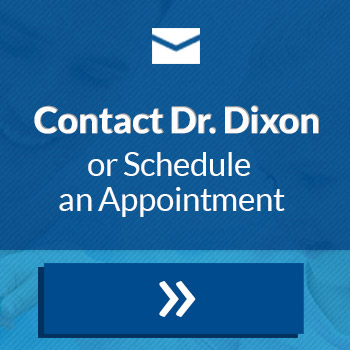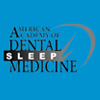Understanding Dental Illness and Conditions
Discover the causes, symptoms and treatment options for the most common dental illness and oral health issues.
- Gum Disease
- Cavities & Tooth Decay
- Bad Breath
- Teeth Grinding & Clenching (Bruxism)
- Toothaches
- Crooked & Misaligned Teeth (Malocclusion)
- Sensitive Teeth
- Dry Mouth
- Jaw Pain & TMJ/TMD
- Sleep Apnea
Gum Disease
Gum disease, also known as periodontal disease or gingivitis, is a condition caused by unchecked plaque and bacteria in the mouth. Once gum disease advances to a certain point, it can become impossible to treat with conventional tooth brushing. Professional work by a dentist is required to remove the buildup of tartar and to restore your oral health.
Symptoms:
- Tender, swollen gums that often bleed
- Persistent bad breath
- Loose and sensitive teeth
- Receding gums that leave easily infected pockets around the teeth
Prevention & Treatment:
Visit the dentist regularly to keep tartar from developing and causing gum disease. Regular brushing and flossing is key to maintaining oral hygiene. If you are experiencing symptoms of gum disease, visit a dentist for treatment to reverse gum disease.
Cavities & Tooth Decay
Bacteria that build up around the teeth form a colorless layer called plaque. The acid produced by the plaque and bacteria that feed on the food you eat can cause your teeth to decay. Damage to your teeth can lead to cavities and erosion of the outer layer of your teeth, called enamel.
Symptoms:
- Toothache
- Swollen gums
- Regular bad breath or a bad taste
- Spots on your teeth
Prevention & Treatment
Regular flossing and brushing with fluoride toothpaste will keep plaque and tartar from building up to dangerous levels and causing tooth decay. Fluoride will help keep your enamel strong and resistant to the effects of bacteria. If you have a toothache or other symptoms, visit a dentist for treatment.
Bad Breath
Bad breath, also known as halitosis, can be caused by many different conditions. What you eat, poor dental hygiene, gum disease, infection, dry mouth and other problems can lead to bad breath. Depending on the cause, there are certain actions you can take to prevent bad breath.
Prevention & Treatment
- Brush twice each day using fluoride toothpaste
- Floss daily to keep food particles out of your teeth
- Regularly visit the dentist
- Drink water and avoid tobacco
If you are practicing good eating and dental habits but still suffer from bad breath, you may want to visit a dentist for a professional diagnosis.
Teeth Grinding & Clenching (Bruxism)
Bruxism is a condition that causes people to involuntarily grind their teeth, often while sleeping. Occasional teeth grinding and clenching does not cause health issues, but when the problem is very consistent, teeth can become loose or damaged. It can also affect your jaw and cause persistent pain.
Symptoms:
- Persistent headaches or sore jaw after sleeping
- Loose, worn or damaged teeth
- Sensitive teeth
- Sore jaw muscles
Prevention & Treatment
- Mouth guards for sleeping
- Physical therapy
- Stress counseling
- Avoid caffeine and alcohol
- Avoid chewing objects
- Visit a dentist
Toothaches
Pain in your tooth or in multiple teeth can be caused by many dental conditions, including infection, decay, cavities, fracture, teeth grinding and more. If you are experiencing a lasting toothache, consider visiting a dentist to be diagnosed and treated.
Symptoms
- Sharp, throbbing, or persistent pain in a tooth
- Swollen gums around a tooth
- Headache
- Bad taste in mouth
Prevention and Treatment
Depending on the cause of the toothache, treatment will vary. To minimize your risk of toothache, brush twice daily with fluoride toothpaste and floss regularly. Avoid caffeine, alcohol and high stress environments to reduce teeth grinding. If you experience a toothache for more than a day or two, a dentist can diagnose and treat the root cause of the pain.
Crooked & Misaligned Teeth (Malocclusion)
Crooked teeth, known medically as malocclusion, can be caused by several factors. Oftentimes misaligned teeth are a result of hereditary traits. Patients may naturally develop an overbite, underbite or a small mouth that causes teeth to become crowded. Crooked teeth can also be caused by premature loss of baby or adult teeth, excessive pressure on the mouth or jaw, gum disease, injury, and prolonged thumb sucking or use of a bottle.
Symptoms
- Unusual teeth alignment
- Difficulty chewing
- Speech problems
- Misaligned jaw
Prevention and Treatment
In some cases, you cannot prevent crooked teeth if the root cause is genetic. However, there are treatment options available, including invisible braces (Invisalign and Six Month Smiles), retainers or removal of problem-causing teeth. Schedule an appointment with a dentist for proper diagnosis and complete treatment options.
Sensitive Teeth
Teeth can become sensitive and painful for several reasons. Some of the most common causes of sensitive teeth include:
- Tooth decay and cavities
- Gum disease/gingivitis
- Damage
- Infection
- Acidic foods
- Grinding your teeth or brushing too hard over time
Prevention and Treatment
Depending on the root cause of your sensitive teeth, there are many possible treatments and prevention methods.
- Brush regularly with fluoride toothpaste for sensitive teeth
- Brush more gently
- Avoid acidic foods
- Prevent teeth grinding with a mouth guard or therapy
- Visit the dentist regularly
Dry Mouth
Dry mouth occurs when your mouth does not produce enough saliva. Dry mouth can be caused by:
- Dehydration
- Fever
- Nerve damage
- Side effects of medicines or diseases
- Infection
- Tobacco
Symptoms
- An uncomfortable dry feeling in the mouth
- Persistent thirst
- Sores and dry lips
- Burning sensation in the mouth
- Raw tongue
- Difficulty speaking or eating
- Bad breath
Prevention and Treatment
Depending on the cause, dry mouth can be treated with saliva inducing medication, oral rinses, candy or gum, increased water intake, room vaporizers and regular brushing with fluoride toothpaste. Visit the dentist for a professional diagnosis and treatment plan for your dry mouth.
Jaw Pain & TMD/TMJ
Temporomandibular joint disorders (TMD/TMJ) involve problems with the muscles that control the joint connecting your jaw to the temple areas of your skull. Not much is known about the causes of TMD, but these are the most commonly noted causes:
- Injury to the jaw, head or neck
- Pressure caused by grinding your teeth (often related to stress)
- Dislocation of the disc in the TMJ
- Arthritis of the TMJ
Symptoms
- Pain and discomfort in the jaw, face, neck and shoulders
- Difficulty chewing and opening your mouth wide
- Frequent locking of the haw
- Sore face muscles
- Swelling around your temples
- Headaches
- Rining in the ears (tinnitus)
Prevention and Treatment
TMD can be a temporary condition or it can last for years. Visit a dentist for proper diagnosis and treatment options. Treatment often includes:
- TMJ mouth guards
- Eating habit changes
- Massages and physical therapy
- Stress management techniques
- Hot or cold packs on the face
- Avoid sever jaw movements and teeth grinding
Sleep Apnea
Sleep apnea is a condition that causes pauses in your breathing while you sleep. Depending on the severity of the case, blockages in your airway can occur between 1 and 100 times each hour you are asleep and can last seconds or minutes. These blockages can increase the risk of heart problems, high blood pressure, frequent snoring and loss of sleep.
Symptoms
- Airway obstructions during sleep
- Loud snoring
- Sleep deprivation
- Fatigue and drowsiness during the day
- Depression
- Dry mouth
- Head ache
- Teeth grinding
Prevention and Treatment
Visit a dentist that specializes in sleep apnea treatment for a professional diagnosis and treatment. Treatments can include:
- Oral appliances
- CPAP machines
- Lifestyle changes (losing weight, avoiding alcohol and smoking)
- Surgery, in more severe cases
Dr. Dixon: A Dentist You Can Trust
|
|
5 Stars - wish there was a higher rating to choose.
This was the best experience I've ever had at a dentist office.
I could not be happier with my dentist! |
|
|
|
|
Learn More And Speak With Dr. Brad Dixon In Gainesville Today!
Are you suffering from dental problems? If you live in the Gainesville and the North Georgia area, Dr. Dixon will be happy to schedule a consultation. Contact us today!














